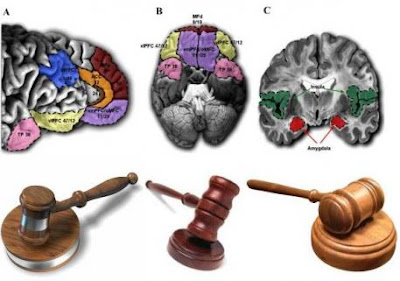Daubert and Frye: Neuroscience in the Courtroom?
I recently found myself thinking about how we would allow evidence dealing with neuroscience into the courtroom. The question interested me because I wanted to know how our judicial system would differentiate between real and useful evidence versus what may seem no better than allowing a Shaman enter to argue a point based on "evidentiary mysticism". What I found was that there are two different legal rules for allowing use of neuroscience evidence. The first is the Frye rule and the second is the Daubert rule. Daubert applies in Federal Courts and in States that have adopted it, while the Frye rule applies in all other courts. The difference between the texts of the standards can seem nuanced but presents two different outcomes judicially. Joseph T. Walsh has a great primer on the two rules if you would like to explore them more, but the issue that I would like to deal with here is simple and does not require a complete knowledge of both rules. Basically you just have to un...
